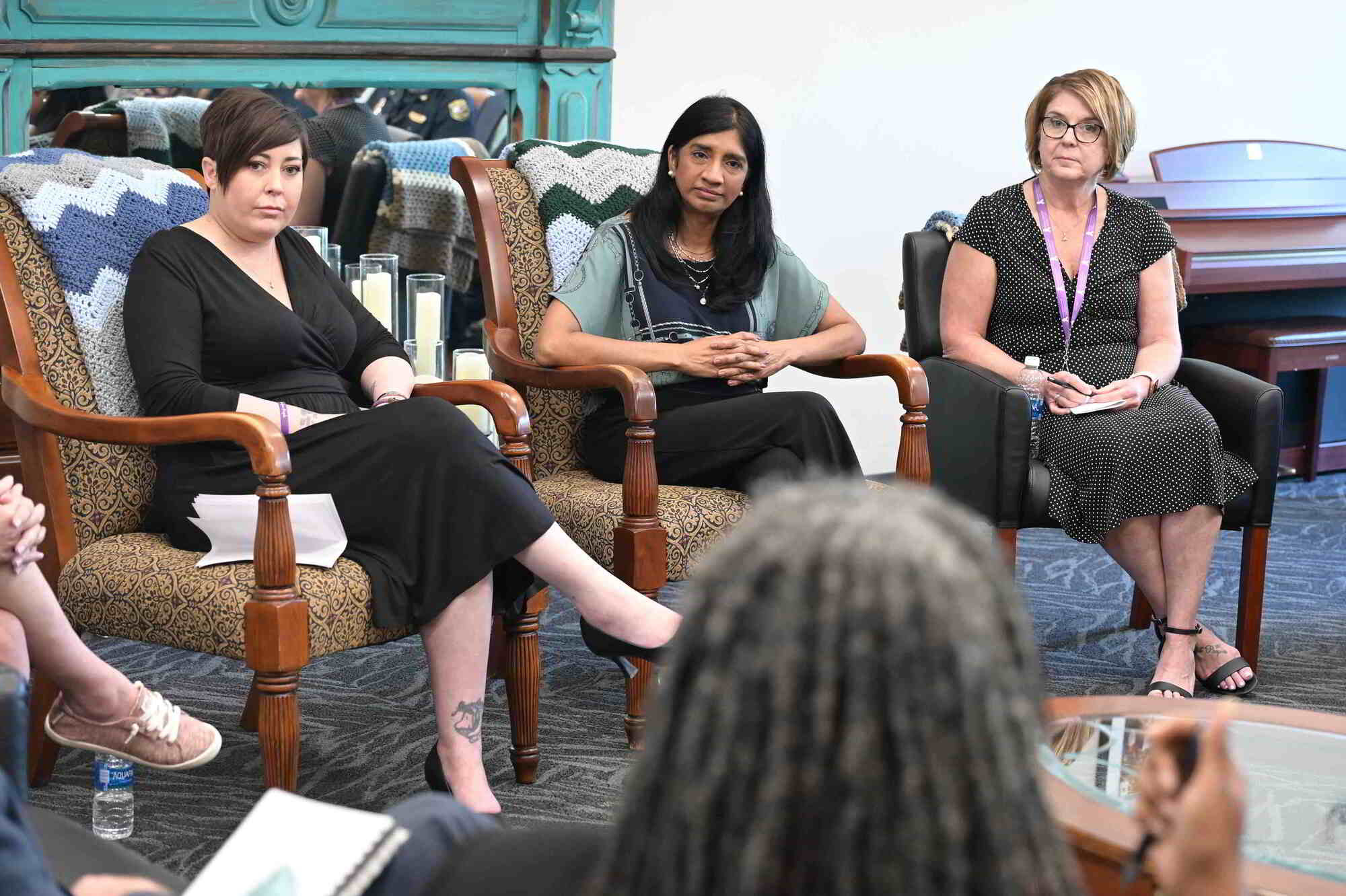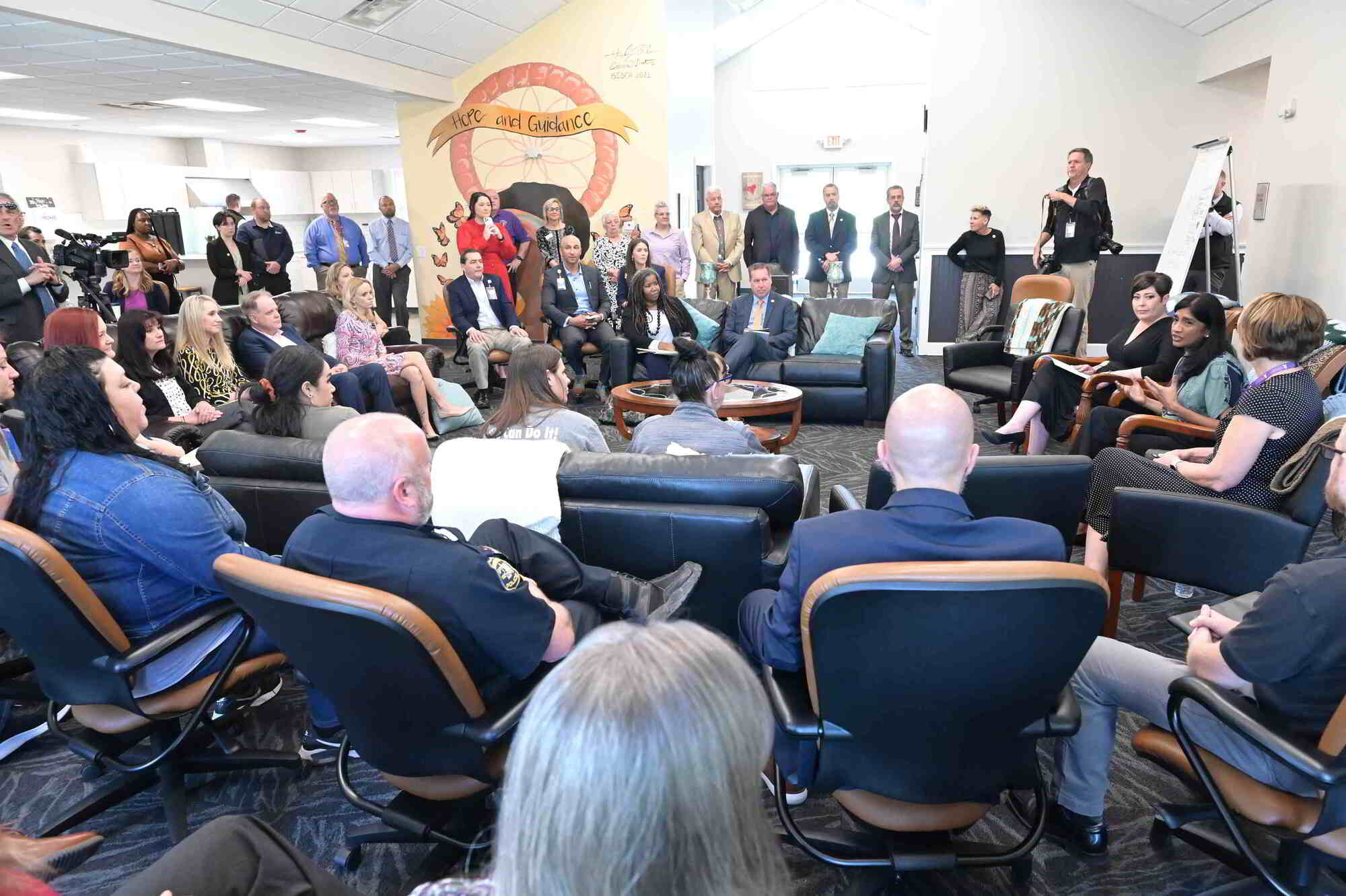HAGERSTOWN, MD – Today, Lt. Governor Aruna Miller attended a roundtable in Hagerstown focused on Maryland’s response to the opioid and overdose crisis with Special Secretary of Opioid Response Emily Keller, the Washington County Opioid Intervention Team (OIT), local elected officials, and individuals currently in recovery. The event was hosted by Brooke’s House, a substance use recovery home for women founded in 2018.

“Addressing the opioid and overdose crisis requires a holistic approach from all of us,” said Lt. Governor Aruna Miller. “It starts with listening to those closest to the challenge because they are closest to the solution, like Brooke’s House in Hagerstown, which provides comprehensive and compassionate care for individuals with substance use disorder. Through these partnerships, we can make Maryland a leader in combating the opioid and substance use crisis."
The Moore-Miller administration included significant funding increases for behavioral health and substance use disorder treatment services in the budget for the 2024 fiscal year, including a 39 percent increase in support for substance use disorder services.

Members of the Washington County Opioid Intervention Team provided their ideas to expand access to substance use resources, such as treatment and recovery services. Opioid Intervention Teams are multi-agency groups in each of Maryland’s 24 local jurisdictions that work to increase local coordination to address the opioid and overdose crisis. Each OIT is chaired by the local health officer and emergency manager and is required to have representatives from various other agencies and organizations, including law enforcement, social services, education, and community groups.
“We need everyone at the table,” said Special Secretary of Opioid Response Keller. “The opioid and overdose crisis is complex, and it affects all Maryland communities. It’s going to take all of us working together to create a truly comprehensive system where everyone can access care.”